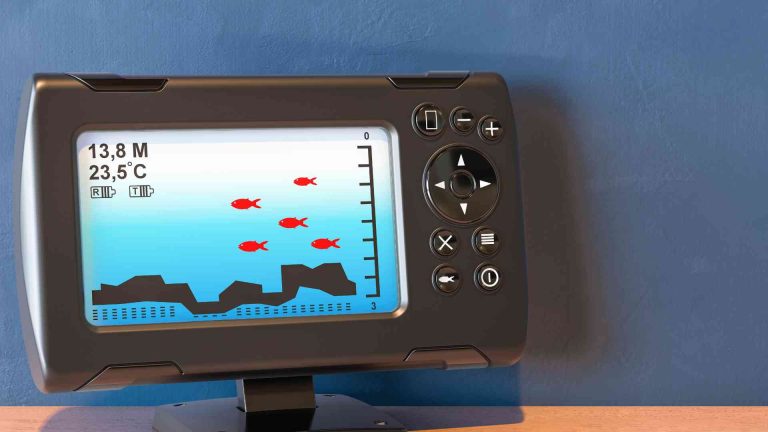What Does Dry Weight Mean on a Boat? Guide
When it comes to boats, the term “dry weight” carries significant importance for boaters and enthusiasts alike. Just like any other vehicle, a boat’s weight plays a crucial role in determining its performance, handling, and practicality. Understanding a boat’s dry weight can have implications on various aspects of boating, from fuel efficiency to transportation and storage considerations.
In this comprehensive guide, we will delve into the concept of dry weight on a boat, demystifying its meaning and shedding light on its significance for boaters. Whether you’re a seasoned boater looking to optimize your vessel’s performance or a novice contemplating your first boat purchase, gaining a clear understanding of dry weight will undoubtedly empower you to make informed decisions and enjoy smooth sailing on the water. So, let’s dive in and explore the world of dry weight in the context of boats!
Definition of Boat Dry Weight

In the context of boats and watercraft, “dry weight” refers to the baseline weight of the vessel without any additional load or liquids on board. It encompasses the weight of the boat as it leaves the factory or dealership, free from fuel, water, gear, passengers, or any other accessories.
Imagine a boat fresh off the assembly line, devoid of fuel, water tanks, and personal belongings. This unladen weight, known as the dry weight, serves as the starting point for understanding how much additional weight the boat can safely carry while maintaining optimal performance.
By providing the dry weight, manufacturers offer a crucial piece of information that allows boaters to calculate the boat’s total weight when fully loaded, ensuring they stay within the recommended capacity and maintain the boat’s intended performance characteristics. Understanding a boat’s dry weight is essential for making informed decisions about payload, transportation, and storage considerations.
Significance of Boat Dry Weight
Knowing a boat’s dry weight holds significant importance for several crucial boating considerations. Understanding this baseline weight provides valuable insights into a boat’s performance, safety, and transportability.
- Weight-Carrying Capacity: The dry weight serves as a reference point for calculating the boat’s maximum carrying capacity. By subtracting the dry weight from the boat’s total weight capacity, boaters can determine how much gear, passengers, and other items they can safely bring on board without exceeding the boat’s limits. This knowledge helps prevent overloading, which can compromise stability, handling, and safety on the water.
- Performance Considerations: The dry weight directly impacts a boat’s performance characteristics. By knowing the baseline weight, boaters can better understand how additional weight affects the boat’s maneuverability, speed, fuel efficiency, and overall handling. Proper weight distribution is vital for maintaining stability and optimizing the boat’s performance during various water activities.
- Transportation: The dry weight is crucial when selecting an appropriate trailer and tow vehicle for transporting the boat. Overloading a trailer can strain the vehicle and affect its handling, braking, and fuel efficiency. By accounting for the boat’s dry weight, boaters can ensure they use the right towing equipment, adhering to safety guidelines and legal requirements for towing on roads.
- Storage Considerations: Boaters must consider the dry weight when choosing the appropriate storage facility. Whether keeping the boat on a trailer, in a marina slip, or on a boat lift, understanding the dry weight helps ensure that the storage method can adequately support the boat’s weight and dimensions.
By being aware of a boat’s dry weight, boaters can make informed decisions to ensure their safety, optimize performance, and maintain the boat’s longevity. Whether embarking on a leisurely cruise or engaging in water sports, knowing the dry weight is a fundamental step towards a successful and enjoyable boating experience.
Boat Dry Weight vs. Gross Weight: What Is the Difference?
Dry weight and gross weight are two essential concepts that help boaters understand the weight-related aspects of their boats. While both are crucial, they represent different weight considerations.
Dry Weight:
As discussed earlier, the dry weight refers to the weight of the boat without any additional items, such as fuel, water, gear, or passengers. It represents the baseline weight of the boat as it leaves the factory or dealership. The dry weight is useful for determining weight-carrying capacity, selecting an appropriate trailer and tow vehicle, and understanding the boat’s performance characteristics.
Gross Weight:
The gross weight, on the other hand, includes the boat’s dry weight along with all additional items on board, such as fuel, water, gear, passengers, and accessories. It represents the boat’s total weight when fully loaded for a particular outing. The gross weight accounts for all factors that contribute to the boat’s weight while in use.
Understanding both the dry weight and gross weight is crucial for adhering to weight limits and ensuring safe boating practices. Exceeding the boat’s weight-carrying capacity can lead to instability, reduced performance, and safety risks, potentially causing the boat to handle poorly on the water.
Boaters must be aware of the gross weight to ensure they do not overload their boats during outings. This involves accounting for the weight of all passengers, gear, and equipment, as well as any fuel and water on board. Striving to stay within the boat’s specified gross weight limits helps maintain the boat’s stability and ensures that it performs optimally and safely on the water.
By knowing both the dry weight and gross weight, boaters can make well-informed decisions about the appropriate amount of cargo, passengers, and equipment to bring on board for each trip. Prioritizing weight management helps create a safe and enjoyable boating experience, enabling the boat to perform at its best and keeping everyone on board safe.
Implications of Dry Weight on Boat Performance
The dry weight of a boat plays a significant role in determining its performance on the water. Here are some key implications of a boat’s dry weight on its performance:
- Fuel Efficiency: A lighter dry weight typically results in improved fuel efficiency. With less weight to propel through the water, the boat’s engine requires less power, leading to reduced fuel consumption. Boaters who prioritize fuel efficiency may choose boats with lower dry weights, especially for long-distance trips or extended cruising.
- Top Speed: A boat’s dry weight can also impact its top speed. Lighter boats tend to achieve higher speeds more easily since they encounter less resistance in the water. Boaters seeking faster performance may opt for boats with lower dry weights, especially if speed is a priority in their boating activities.
- Stability and Handling: While dry weight can influence speed and fuel efficiency, the boat’s overall stability and handling are influenced by the distribution of weight, including both dry and gross weight. Proper weight distribution is essential for maintaining stability and ensuring safe handling on the water.
- Center of Gravity: The distribution of weight, particularly gross weight (including passengers, gear, and fuel), affects the boat’s center of gravity. Boats with a lower center of gravity tend to be more stable, providing a smoother ride and better resistance to capsizing or tipping.
- Weight Distribution: Uneven weight distribution, such as having too much weight toward the bow or stern, can affect how the boat rides in the water. Improper weight distribution may lead to poor handling, reduced maneuverability, and even a risk of swamping in rough conditions.
Boaters should be mindful of properly distributing weight on their boats to ensure optimal performance and safety. Following the manufacturer’s guidelines for weight distribution, including the dry weight, ensures the boat remains stable and predictable in various water conditions.
Overall, while a boat’s dry weight can influence aspects like fuel efficiency and top speed, it is just one factor in determining a boat’s overall performance. Proper weight management, including both dry and gross weight, is essential for achieving a balance of speed, stability, and handling characteristics that cater to the boater’s preferences and intended use on the water.
How the Dry Weight Influences the Choice of a Boat Trailer?

The dry weight of a boat significantly impacts the choice of an appropriate boat trailer. Here’s how the dry weight influences trailering considerations:
- Trailer Weight Capacity: When selecting a boat trailer, it’s crucial to consider the boat’s dry weight. The trailer’s weight capacity should exceed the boat’s dry weight to accommodate additional weight from fuel, gear, and passengers. By choosing a trailer with a higher weight capacity, boaters ensure that the trailer can safely carry the fully loaded boat without exceeding its limits.
- Safe Towing: Towing a boat requires adherence to safe towing practices, and the boat’s dry weight plays a crucial role in this regard. The total weight of the boat and trailer, including gear and other cargo, should not exceed the tow vehicle’s maximum towing capacity. Exceeding the towing capacity can strain the vehicle’s engine and braking system, leading to unsafe driving conditions and potential accidents.
- Compliance with Towing Regulations: Towing regulations vary by location, and knowing a boat’s dry weight is essential for complying with these regulations. Many regions have specific rules regarding the permissible weight a vehicle can tow without additional licenses or restrictions. Boaters should ensure that their boat and trailer combination adheres to these regulations to avoid legal issues during transportation.
- Balancing the Load: Proper weight distribution on the trailer is crucial for safe and stable towing. The dry weight of the boat, along with the weight of other gear and accessories, should be distributed evenly on the trailer to maintain balance and prevent swaying during transport.
Boaters should consult the boat’s manufacturer or the boat dealer to obtain the accurate dry weight of their vessel. Armed with this information, they can make an informed decision when choosing a suitable boat trailer that provides the necessary weight capacity for safe and efficient towing. Additionally, checking local towing regulations ensures that boaters are compliant with the law and can enjoy hassle-free transportation of their boat to various waterways for boating adventures.
Relevance of a Boat’s Dry Weight in Terms of Storage Considerations
Understanding a boat’s dry weight is essential when it comes to storage considerations. Here’s why knowing the dry weight is relevant for safe and efficient boat storage:
- Structural Integrity: Boaters must ensure that the storage area, whether it’s a lift, dock, rack, or other storage solution, can safely support the boat’s weight. The dry weight provides a baseline measurement to determine whether the storage structure is capable of handling the boat’s mass without causing damage or compromising its structural integrity.
- Weight Capacity of Storage Solutions: Different storage solutions have weight capacity limits, and knowing the boat’s dry weight helps determine if a specific storage area is suitable for the boat. Exceeding weight limits can lead to the storage system’s failure and potential damage to the boat or the storage structure.
- Positioning on Trailers or Storage Areas: When placing the boat on a trailer or in a storage area, it’s crucial to distribute the weight evenly to maintain balance and stability. The dry weight serves as a reference point for positioning the boat correctly on the trailer or storage platform, ensuring safe and stable storage.
- Preventing Damage: Knowing the boat’s dry weight helps prevent overloading or underloading the storage system, which can lead to damages over time. Proper weight distribution in storage minimizes stress on the boat’s hull and other components, prolonging the boat’s lifespan and reducing the risk of costly repairs.
Boaters should take into account the dry weight of their boat when choosing a storage solution or determining its placement on a trailer. It’s advisable to consult with storage facility operators or boat manufacturers to ensure that the chosen storage area or trailer can adequately support the boat’s weight. By considering the dry weight in storage decisions, boaters can maintain their vessels in optimal condition and enjoy worry-free boating experiences season after season.
Watch How a weight distribution hitch works | Video
Top 5 FAQs and answers related to Dry weight mean on a boat
What does dry weight mean on a boat?
Why is knowing a boat’s dry weight important?
How does a boat’s dry weight affect its performance?
How can I find a boat’s dry weight?
How does dry weight differ from gross weight?
Conclusion

In conclusion, understanding a boat’s dry weight is essential for boaters to make informed decisions about their watercraft. We have learned that dry weight refers to the boat’s weight without any additional items or fluids, serving as the baseline weight when leaving the factory or dealership. The significance of knowing this weight extends to determining weight-carrying capacity, influencing performance on the water, and aiding in choosing appropriate trailers and tow vehicles.
We also explored the distinction between dry weight and gross weight, where the latter includes all fluids, gear, and passengers. Both dry and gross weights are crucial for complying with weight limits and ensuring safe boating practices.
Knowing the boat’s dry weight can positively impact fuel efficiency, speed, and overall handling on the water. Moreover, it plays a vital role in selecting suitable storage areas and trailers, ensuring the boat’s balance and stability.
In conclusion, I encourage readers to consult the boat’s manufacturer or dealer for accurate dry weight information and use this knowledge to make sound decisions in their boating experiences. With this comprehensive guide, boaters can embark on safe and enjoyable adventures, making the most of their watercraft and creating lasting memories on the water.
Share What Does Dry Weight Mean on a Boat? Guide with your friends and Leave a comment below with your thoughts.
Read How Do Yachts Make Money? Exploring 10 Different Methods until we meet in the next article.





